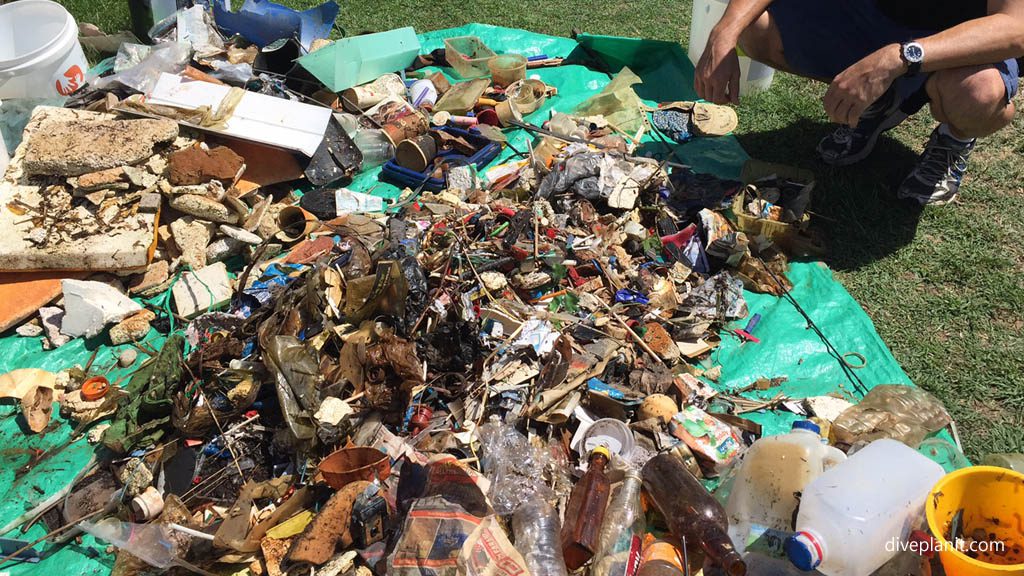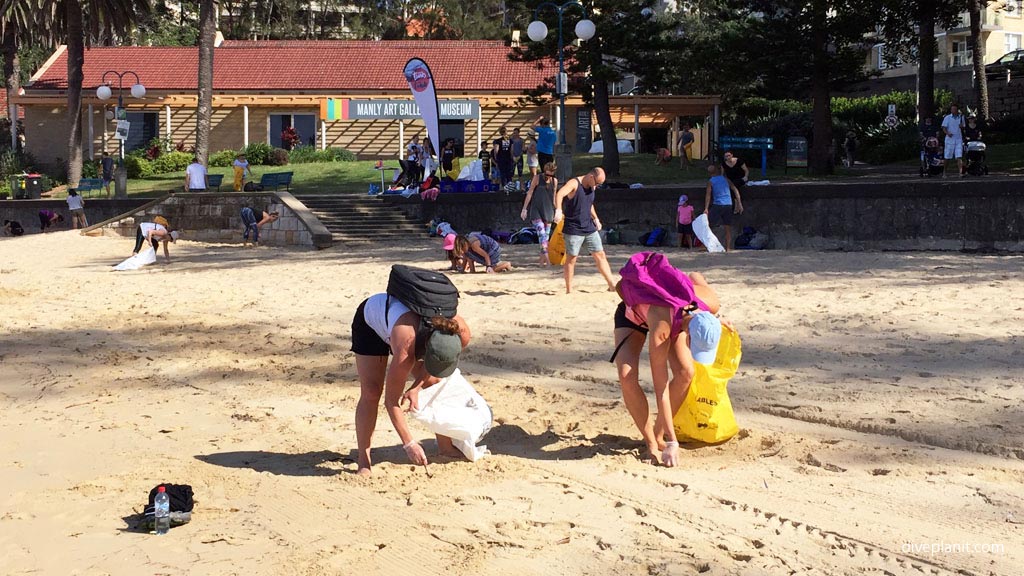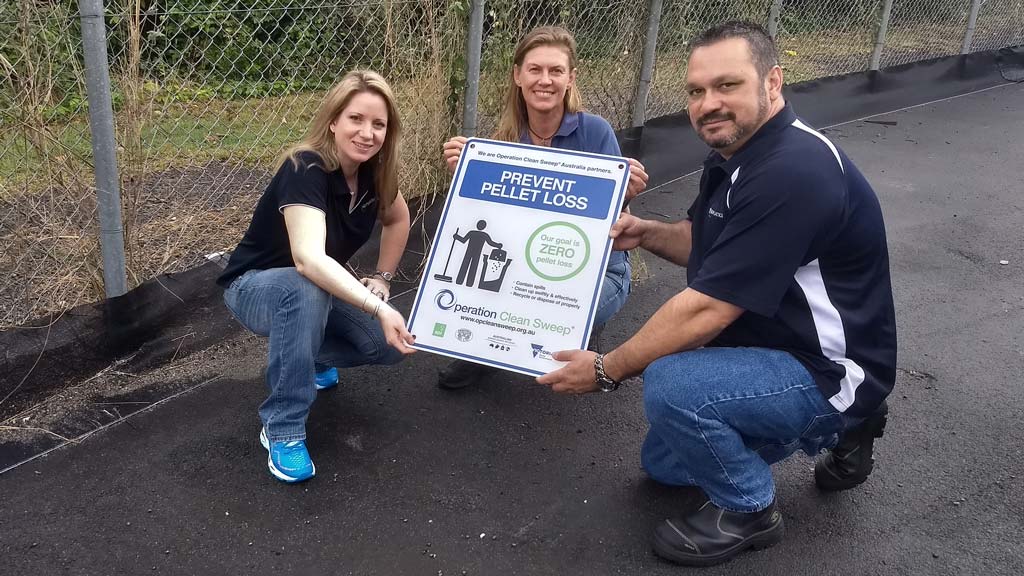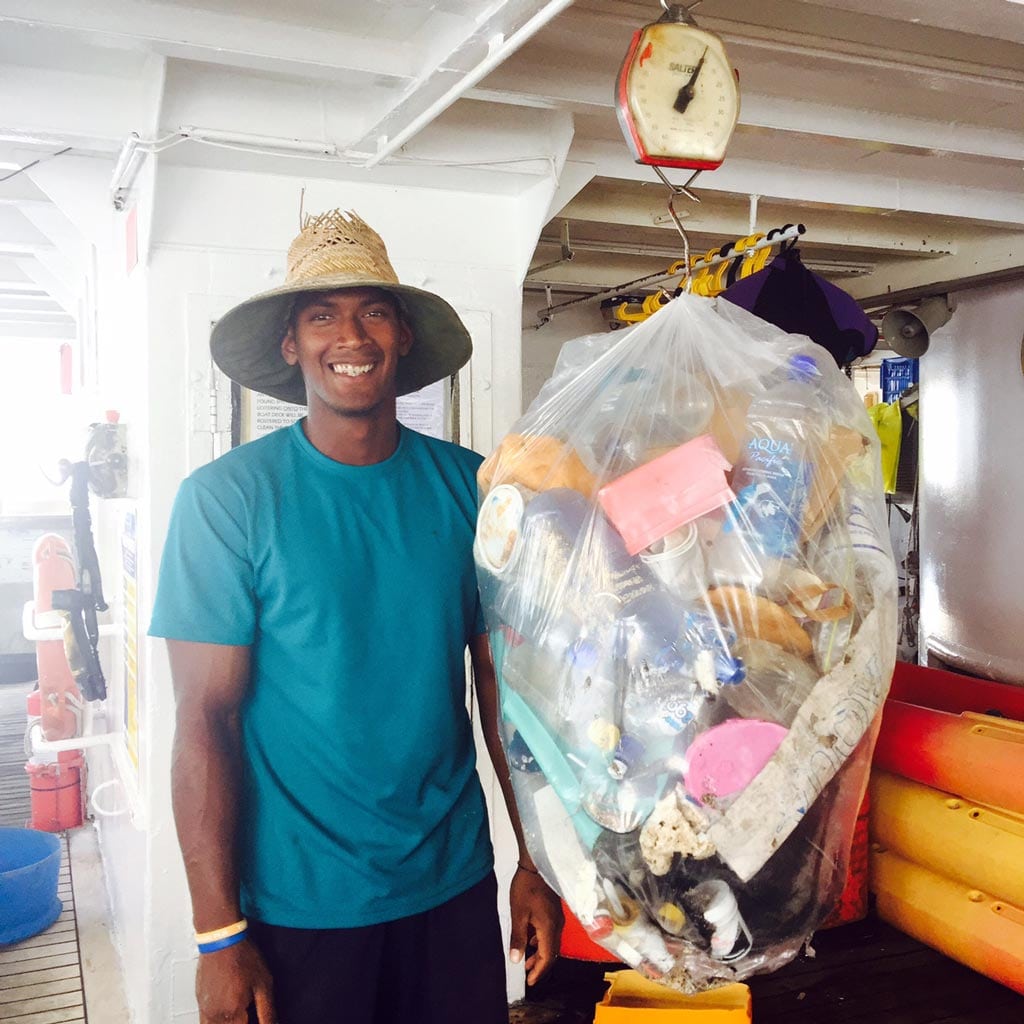Joining a beach clean-up makes us feel good for a few hours, but when you’ve cleaned the same beach every week or month, over and over, it can get a bit depressing. You get the feeling: ‘Is this it then? Will we be cleaning up beaches forever?’
BUT! If the findings of your beach clean-up are logged, with data reported to Tangaroa Blue, you can turn your clean-up into upstream action, and contribute to cleaning up plastic waste at the source.
Tangaroa Blue runs the Australian Marine Debris Initiative: a network of volunteers, communities and organisations that contribute data about rubbish collected during clean-ups. This data is then used to work on solutions to stop the flow of litter at the source. They provide resources and support programs, collaborate with industry and government to create change on a large scale.
Simply put: volunteers => data => Tangaroa Blue => information => plastic waste solutions for consumers and manufacturers.
It starts with a clean-up…
This is where you and organisations like Surfrider, Two Hands Project, and Take 3 for the Sea come in. There are plenty of opportunities to join in a clean-up, you can even start your own group, just like the Northern Beaches Clean Up Crew has done.
Starting a regular beach and/or underwater cleanup does more good than simply cleaning up. There is an opportunity to educate people while you’re cleaning up. Lots of people will stop to ask what you’re doing (and why), and some will join in.
BUT – the most important thing is the accurate logging of all the trash you’ve found. Don’t worry – you don’t need a degree in environmental science to do this – there are stacks of resources on the Tangaroa Website to help. Even a series of videos to take you through the whole process.
Looking for debris patterns
One of the things you’ll learn to identify when logging the quantities of rubbish you find, is the types of rubbish found – and sometimes that’s surprising. Did you think beforehand you’d find so many straws, cotton buds or soy fish containers?
It really makes you think about your purchases – you’ll no doubt refuse a straw with your next cocktail, and maybe season your sushi before leaving the shop – maybe choose a facial cleanser without microplastic beads.
What you’ll notice after several clean-ups, are patterns. Imagine these patterns on a wider, national and even international scale? That’s what Tangaroa Blue provides – for government bodies and manufacturers: data that shows them where specific types of plastic waste have been found, so they can locate the source and find solutions.
From debris patterns to clean-up campaigns
This is where the rubber really hits the road. By analysing the debris signature from a number of clean ups in the same area, Tangaroa Blue can get strategic about solutions required – in particular with source reduction programs.
One such initiative is Operation Clean Sweep: an Australia-wide initiative to prevent plastic pellet loss – those are the raw plastic pellets used in the fabrication of plastic products. FNQ Plastics signed up to Operation Clean Sweep – they put barrier mesh around their premises to prevent any plastic manufacturing off cuts and pellets from being lost out of their premises.
Another Source Reduction Plan that Tangaroa Blue developed with the Hobson Bay City Council addressed cigarette butt litter. Ms No Butts handed out recycled mint tins, made into personal cigarette butt bins while talking to smokers about new smoking legislation in Melbourne.
Don’t wait to be asked – just do it!
You might think you are just another sole individual – but everyone has the power to gather their mates, or their work colleagues together to make a difference.
Captain Cook Cruises Fiji, for example, has appointed an Ocean Ambassador on each departure, to lead clean ups on every island visited on their small ship cruises and log all their findings with Tangaroa Blue. This is the first initiative of its kind in Fiji and will start to build invaluable data on marine litter issues in Fiji.
If Samisoni can do it … so can you.
Get involved: Jack Johnson’s All At Once Campaign
If you’re looking for ways to get involved, maybe take in a Jack Johnson concert? You’ll find various like-minded organisations exhibiting at Jack Johnson‘s concerts when he tours Australia later this month. Through Johnson’s All At Once campaign, the Summer Tour will support a number of non-profit partners, including Surfrider Foundation Australia and Two Hands Project, encouraging fans to take action in support of plastic free initiatives.
Fans can visit these partners in the Village Green and participate in the greening actions at each show. Leading up to each show, All At Once partner Tangaroa Blue will be hosting volunteer beach clean-ups in each concert city. Further information Jack Johnson’s Australian tour here.

If you liked this post, you might also like Surfrider Foundation – another bunch of ocean advocates committed to keeping our litter out of the oceans.









Tangaroa Blue is an amazing organisation, and Heidi Taylor very inspiring.
One way to stop marine pollution at the source is to ban the release of balloons and the use of helium to inflate balloons.
Please sign and share
https://www.change.org/p/minister-for-environment-josh-frydenberg-australia-wide-ban-on-the-release-of-balloons-and-the-use-of-helium-to-inflate-balloons
So true Karen – we find a lot of balloon waste on underwater cleanups – not just the balloons, the plastic ties and strings.